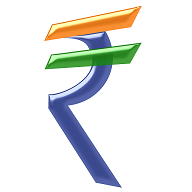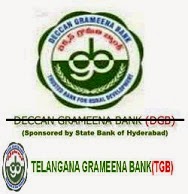 The Indian rupee symbol '
The Indian rupee symbol 'RBI issues all the bank notes except Rupees 1 Notes. These notes are issued by Ministry of Finance. Recently RBI launched a website Paisa‐Bolta‐Hai to raise awareness of counterfeit or fake currency among users of the Indian Rupees and also the citizen of India.
The main security features of current banknotes are:
- →Watermark ‐ White side panel of notes has Mahatma Gandhi watermark.
- →Security thread ‐ All notes have a silver or green security band with inscriptions (visible when held against light) of Bharat in Hindi and "RBI" in English.
- →Latent image ‐ On notes of denominations of Rs.20 and upwards, a vertical band on the right side of the Mahatma Gandhi’s portrait contains a latent image showing the respective denominational value numerally (visible only when the note is held horizontally at eye level).
- →Micro lettering ‐ Numeral denominational value is visible under magnifying glass between security thread and latent image.
- →Intaglio ‐ On notes with denominations of INR5 and upwards the portrait of Mahatma Gandhi, the Reserve Bank seal, guarantee and promise clause, Ashoka Pillar Emblem on the left and the RBI Governor's signature are printed in intaglio (raised print).
- →Identification mark ‐ On the left of the watermark window, different shapes are printed for various denominations INR20: vertical rectangle, INR50: square, INR100: triangle, INR500: circle, INR1,000: diamond). This also helps the visually impaired to identify the denomination.
- →Fluorescence ‐ Number panels glow under ultraviolet light.
- →Optically variable ink ‐ Notes of Rs.500 and Rs.1,000 denominations have their numerals printed in optically variable ink. The number appears green when the note is held flat, but changes to blue when viewed at an angle.
- →See‐through register ‐ Floral designs printed on the front and the back of the note coincide and perfectly overlap each other when viewed against light.
- →EURion constellation ‐ A pattern of symbols found on the banknote helps software detect the presence of a banknote in a digital image, preventing its reproduction with devices such as colour photocopiers.
Different Kinds of Notes:
- →Genuine Notes: Such notes must have a water mark of Asoka Pillar, security thread and serial number along with alphabet. They have distinctive colours.
- →Soiled notes: The currency note which has become dirty due to its use or may be in 2 pieces. No portion of such note should be missing. These notes are accepted for exchange without any restrictions by the banks.
- →Mutilated notes: Such currency notes that are composed of various pieces or they are cut note of which some portion is missing. These notes are exchanged only by the currency chest branches of banks.
- →Single/double numbered notes: Notes up to Rs.5 are single numbered while the notes above Rs.5 are double numbered notes.
RBI’S Clean Note Policy
RBI had announced ‘Clean Note Policy’ in January, 1999.
For withdrawing soiled notes from circulation and pumping fresh notes into circulation, the RBI introduced various changes in the system and procedures related to currency management which include mechanization of the currency verification and processing as also shredding and briquetting for destruction of soiled and mutilated notes.
Rules and Instructions Issued by RBI:
→Not to staple bank notes.→To Tender soiled notes to the Reserve Bank in unstapled condition.
→To use bands instead of staple pins.
→To issue only clean notes to members of public.
→To open select currency chest branches on Sundays to provide exchange facility to members of public all over the county.
→To provide unrestricted facility for exchange of soiled and mutilated notes to members of public.
→Banks should sort notes into re‐issuables and non‐ issuables, and issue only clean notes to public.
→Soiled notes in unstapled condition may be tendered at RBI in inward remittances through Currency Chests.
→Banks should stop writing of any kind on watermark window of bank notes.
Coins of 25 Paise and Below – Withdrawal
→Govt, of India has decided to withdraw the coins of 25 paise and below from circulation from June 30, 2011. Coins of 25 paise and below are not accepted for exchange at the bank branches from July 1, 2011 onward.
Withdrawal of Pre‐2005 Notes:
→Reserve Bank of India decided to withdraw from circulation all banknotes issued prior to 2005 as they have fewer security features as compared to banknotes printed after 2005.
→The withdrawal exercise is in conformity with the standard international practice of not having multiple series of notes in circulation at the same time.
→The RBI has already been withdrawing these banknotes in a routine manner through banks.
→It is estimated that the volume of such banknotes (pre‐2005) in circulation is not significant enough to impact the general public in a large way and the members of public may exchange the pre‐2005 series banknotes at bank branches at their convenience.
→The deadline for exchanging pre‐2005 currency notes of various denominations, including Rs.500 and Rs.1,000, has been extended by another six months till June 30, 2015.










![TCS Interview Process for Fresher’s [General Pattern] TCS Interview Process for Fresher’s [General Pattern]](https://blogger.googleusercontent.com/img/b/R29vZ2xl/AVvXsEgQ0Eps0IuLpmwGLoF_qmko2wN9ODVw0aPLs2iCfQqg5TU35yeW5LjnjmdQnzSoM0m9ZjUqJXLRR_gCbbTfknVdi5QATugK2rm5pj3GhATJ5kfTnKv13FdUdbCrzofobEKocyd4LCfGpBQ/s1600/tcs.jpg)